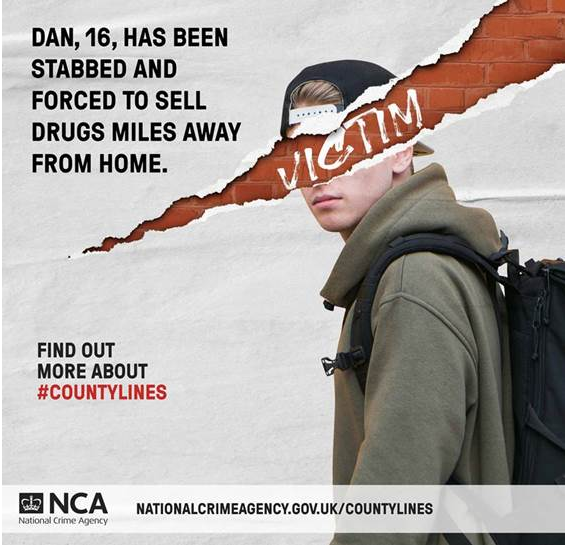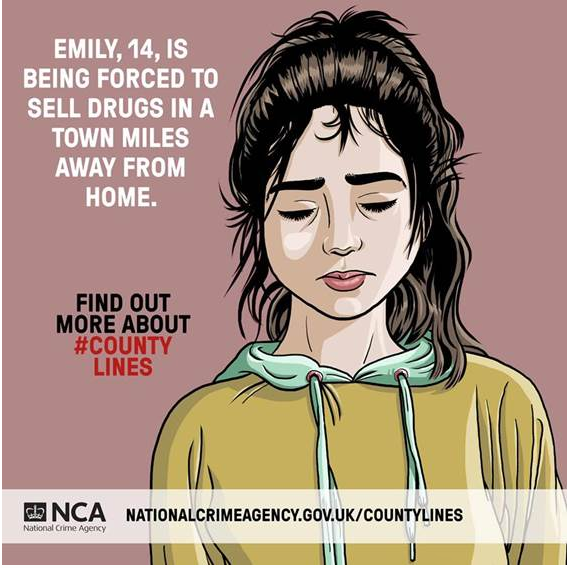What is County Lines?

‘County Lines’ is a term used when drug gangs from big cities expand their operations to smaller towns, often using violence to drive out local dealers and exploiting children and vulnerable people to sell drugs.
These dealers will use dedicated mobile phone lines, known as ‘deal lines’, to take orders from drug users. Heroin, cocaine and crack cocaine are the most common drugs being supplied and ordered. In most instances, the users or customers will live in a different area to where the dealers and networks are based, so drug runners are needed to transport the drugs and collect payment.
A common feature in county lines drug supply is the exploitation of young and vulnerable people. The dealers will frequently target children and adults – often with mental health or addiction problems – to act as drug runners or move cash so they can stay under the radar of law enforcement.
In some cases the dealers will take over a local property, normally belonging to a vulnerable person, and use it to operate their criminal activity from. This is known as cuckooing.
People exploited in this way will quite often be exposed to physical, mental and sexual abuse, and in some instances will be trafficked to areas a long way from home as part of the network’s drug dealing business.
As we have seen in child sexual exploitation, children often don’t see themselves as victims or realise they have been groomed to get involved in criminality. So it’s important that we all play our part to understand county lines and speak out if we have concerns.

How do you know if County Lines drug dealing is happening in your area?
Some signs to look out for include:
- An increase in visitors and cars to a house or flat
- New faces appearing at the house or flat
- New and regularly changing residents (e.g different accents compared to local accent
- Change in resident’s mood and/or demeanour (e.g. secretive/ withdrawn/ aggressive/ emotional)
- Substance misuse and/or drug paraphernalia
- Changes in the way young people you might know dress
- Unexplained, sometimes unaffordable new things (e.g clothes, jewellery, cars etc)
- Residents or young people you know going missing, maybe for long periods of time
- Young people seen in different cars/taxis driven by unknown adults
- Young people seeming unfamiliar with your community or where they are
- Truancy, exclusion, disengagement from school
- An increase in anti-social behaviour in the community
- Unexplained injuries
What to do if you have concerns?
The best advice is to trust your instincts. Even if someone isn’t involved in county lines drug dealing, they may be being exploited in some other way, so it’s always worth speaking out.
You can speak to your local police by dialling 101, or in an emergency 999.
If you would rather remain anonymous, you can contact the independent charity Crimestoppers on 0800 111 555.
If you notice something linked to the railways, you can report concerns to the British Transport Police by texting 61016 from your mobile. In an emergency dial 999.
If you are a young person who is worried about your involvement, or a friend’s involvement in county lines
A good option is to speak to an adult you trust and talk to them about your concerns.
If you want to remain anonymous, you can contact www.fearless.org who are an online service that allows you to pass on information about crime 100% anonymously.
You can also call Childline on 0800 1111 – they are a private and confidential service where you
courtesy : National Crime Agency
